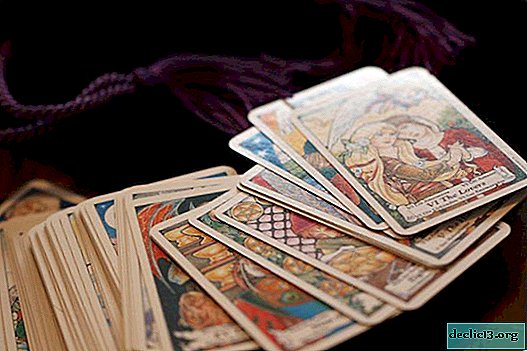Sea buckthorn oil recipes. Useful properties and application

Sea buckthorn is a small, prickly tree or shrub reaching a height of 4-15 meters. The berries are golden yellow or orange in color, the leaves are dark green above and silver below.
Since sea buckthorn flowers are heterosexual, only female plants bear fruit. In order for the tree to bear fruit more efficiently, 1 or 2 male trees are planted, if the garden is small, plant 1 branch from the male tree on the female trunk. It blooms in April or May, the berries ripen in September-October.
Sea buckthorn loves light and warmth, grows on wet sandstones, in highlands, valleys, and along rivers. At home, sea buckthorn oil is prepared in three types.
Cooking sea buckthorn oil at home
Consider three recipes for making sea buckthorn oil at home.
Pure Sea Buckthorn Juice Oil
- Fresh fruits are washed in running water and dried on a paper towel.
- Squeeze the juice in a juicer or grind in a wooden mortar and pass through cheesecloth.
- Pour juice into a wide and not very deep container and leave for a day in a dark place.
- After a day, an oily liquid will appear on the surface. It remains to carefully collect sea buckthorn oil with a spoon.
It is recommended to store oil in the refrigerator.
Video recipe
Sea-buckthorn oil with impurities
In the recipe, in addition to berries, you will need any refined oil (soybean, olive, corn or sunflower).
- Berries are washed in running water and dried in an oven over low heat.
- After the oven, the berries are passed through a coffee grinder (can be ground in a mortar to a state of flour).
- The powder is transferred to a glass container and poured with warmed oil (heat until warm) so as to completely close the resulting powder.
- Store in a dark place at room temperature for about a week, shaking well every day.
- The oil is filtered through a strainer (gauze possible) and again left in a dark place until it becomes transparent in color and a precipitate forms at the bottom.
The resulting oil is poured into another bottle and tightly closed with a cork.
Sea buckthorn oil for cosmetology and treatment
For this recipe you will need 4 cups of fresh and ripe sea-buckthorn and a bottle (0.5 L) of unrefined vegetable oil (suitable for sunflower and olive).
- Hold the berry in the freezer for 5 days, then thaw it, first in the refrigerator, then at room temperature.
- When the berry has completely melted, rinse with cold running water and squeeze the juice, as indicated in the first recipe.
- Pour juice in a jar and refrigerate. Dry the remaining cake by spreading it on a paper towel.
- Once the cake is dry, separate the grains or seeds and pass through a coffee grinder.
- Place the remaining husk and flour obtained from the grains in a saucepan (volume of at least two liters), pour juice and vegetable oil into it, stir well, close the lid and put in a boiling water bath. For a bath, take a larger pan, put a metal lid on the bottom and immerse the pan with contents for about 3 hours.
- After leaving the pan in a dark place for three days, keep at room temperature.
- After a period of time, a layer of oil will appear on the surface, which is collected with a spoon or pipette in a glass container with a tight stopper.
- Leftovers are poured into a smaller pot and left for 3 days. Then the oil is collected again. This can be done up to four times, each pouring into a smaller and narrow pan.
A little history of sea buckthorn oil
Sea buckthorn is an amazing plant known since ancient times. Even the ancient Greeks appreciated this berry, knew its useful properties and application in folk medicine. Once they noticed that the horses roaming in the bush, eating leaves and berries, became more well-fed. The mane and the skin glistened and glossed. Since then, sea buckthorn has been given to exhausted and sick horses. Then they decided to give it to the riders.
There is information about sea buckthorn in ancient manuscripts of Mongolia, in Chinese medicine, and Tibet. The healing properties of sea buckthorn were known to the Slavic peoples. The enlightener Cyril, who created Slavic writing while traveling, healed burns and wounds with “red oil”. Presumably it was sea buckthorn oil.
In the Middle Ages, the healing properties of sea buckthorn were forgotten. Only in the 17th century, sea buckthorn regains its birth. During the development of Siberia, Cossacks who fell into harsh lands healed wounds and strengthened health precisely with sea buckthorn. At that time, it was correctly determined that the fruit and juice of the berry restore strength, and if the berry is dried and poured with vegetable (preferably sunflower) oil, put overnight in a Russian, still warm oven, a bright red liquid will appear - sea buckthorn oil.
Officially, they began to grow sea buckthorn in Russia in the 19th century in the St. Petersburg Botanical Garden. A special varietal sea buckthorn was grown in Altai in the 30s. last century.
Sea buckthorn oil received another recognition in the 70s of the last century, and a real boom occurred in the 80s. Oil then became a real shortage, it was not freely available, doctors prescribed a prescription on special forms, and oil consumption was subject to strict accounting.
How and when is sea buckthorn harvested?
For therapeutic purposes, apply:
- fruits of sea buckthorn;
- bark;
- leaves.
Leaves harvest the entire growing season. Dry on a clean cloth in the shade so that direct sunlight does not fall.
Bark is taken immediately after the end of winter. To do this, cuts in the form of a ring and a longitudinal incision are made on some branches to easily remove the resulting bark ducts. The bark is dried in air, and dried in a dryer at a temperature of about 35 degrees.
It is better to harvest the berry at the beginning of ripening. Collect sea buckthorn to frost. You can even make jam from sea buckthorn, which in taste and aroma is not inferior to quince jam. For sea buckthorn oil, it is better to collect the berry after frost.
The chemical composition and medicinal properties of sea buckthorn
Sea buckthorn is on the first line among traditional healers.
Sea buckthorn contains substances:
- nutritious;
- mineral;
- glucose;
- organic acids;
- tannins;
- nitrogen containing compounds.
Scientists have proven that sea buckthorn contains substances that have beneficial effects on the body and prolong youth.
Sea buckthorn is indispensable for professional athletes. 100 g of berries contain 1.2% protein and 82 kcal. It is rich in carbohydrates and fats, no meldonium is needed.
Sea buckthorn oil has the following properties:
- anti-inflammatory;
- bactericidal;
- wound healing;
- painkillers.
Oil helps regulate metabolic processes in the human mucosa and skin. Berry juice is a storehouse of vitamins, primarily ascorbic acid. Berries are an excellent stimulant of digestion.
Sea buckthorn and traditional medicine
Sea buckthorn berries help with constipation and toxic hepatitis. Juice helps treat purulent ulcers, and is widely used in cosmetology, as it helps to improve and nourish the skin, increase elasticity. The basis of many women's beauty secrets is sea buckthorn.
An infusion is prepared from the leaves, which is used for diarrhea, gout, or rheumatism. An extract with a radioprotective effect is made from bark on alcohol, inhibiting the proliferation of tissues in cancer patients.
Sea buckthorn oil is used both externally and internally. Constant ingestion improves the state of blood vessels in atherosclerosis, normalizes blood pressure, and reduces attacks of angina pectoris and vegetovascular disorders. Oil is used in the treatment of the stomach, intestines, liver, and in gynecology.

















